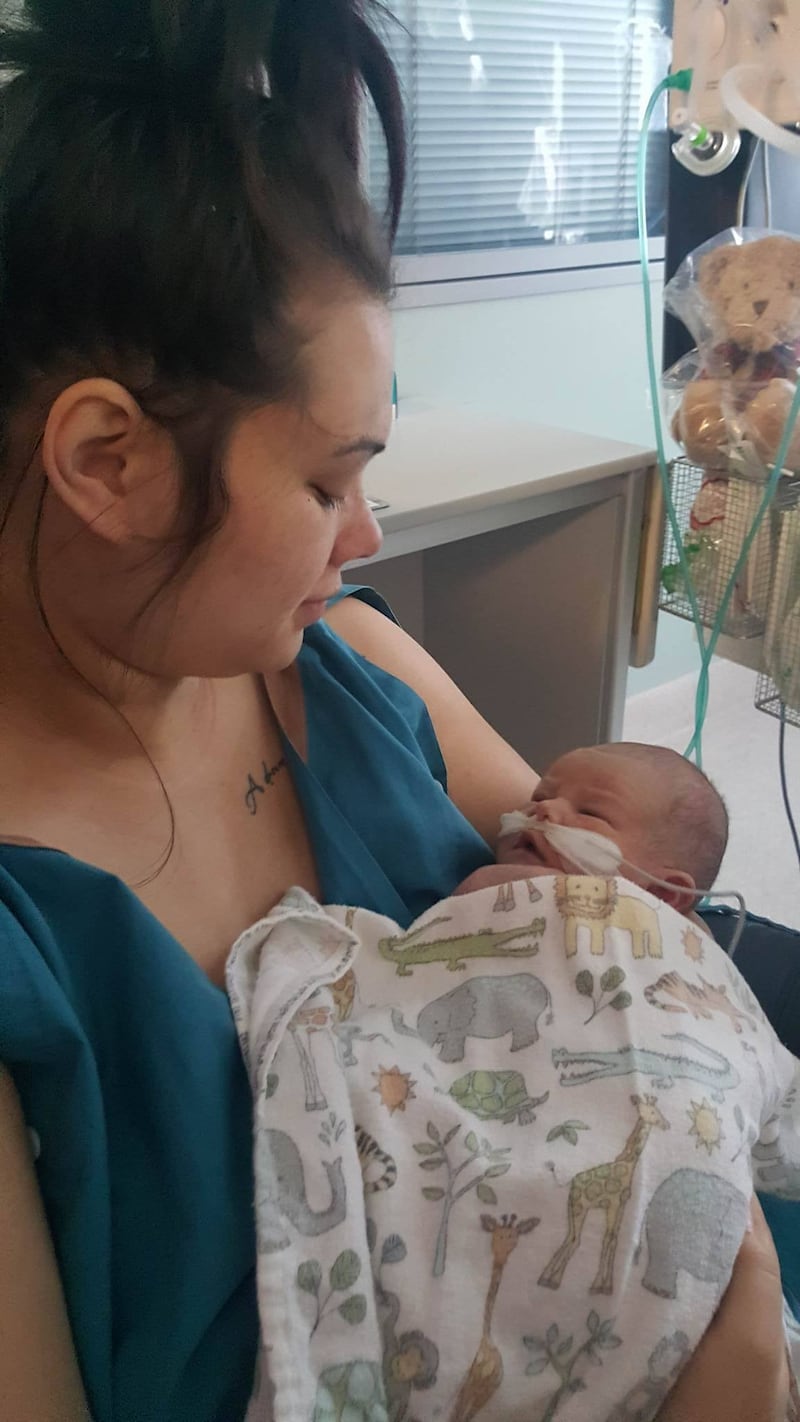Hannah Lorigan - a social worker, AOD worker and māmā of three - is advocating for more tikanga Māori-based care for mothers after the life-changing support she received from a Māori social worker in hospital.
Eight years ago, Lorigan gave birth to her son Journey in an emergency. Within hours, he was flown to Wellington for intensive care and placed on life support.
“We named him Journey because even before birth, he had his own journey.”
Journey spent six days on life support and eight days in NICU. Meanwhile, Lorigan was recovering from surgery to remove her placenta, all while navigating her newborn’s critical health without having even packed a bag.
The experience was overwhelming, but the quiet support of a Māori social worker helped her through.
Lorigan’s grandmother wanted to do whakamoemiti for Journey. While hospital staff hesitated because of concerns for other pēpi and whānau in the room, the social worker not only advocated for tikanga Māori to be observed but also helped Lorigan’s whānau secure accommodation and made sure she felt cared for during this turbulent time.
“We had karakia with our baby and he lived. Despite all odds, he survived. The little things that those kaimahi did are what helped us survive,” Lorigan says.

Te hauora hinengaro o ngā māmā i Aotearoa
The journey through pregnancy, birth, and beyond is challenging for many wāhine in Aotearoa. Statistics show one in seven mothers experience mental health challenges during or soon after pregnancy. For wāhine Māori, this rate is even higher, with one in five continuing to struggle long after birth.
Joanne Teina, a Māori midwife with more than 30 years of experience, says the current system is failing many wāhine Māori.
“It’s just not good enough that the leading cause of maternal death is suicide, and over half of those deaths are wāhine Māori.”
Ka ora ngā tikanga Māori, ka ora hoki te whānau
She speaks passionately about the importance of cultural competency in maternity care.
“Using te reo, using te ao Māori, drawing on the mātauranga of our tūpuna. Once upon a time, postnatal care involved the whole whānau and village. Now many parents are doing it on their own, struggling without that support.”
Teina explains that the lack of Māori midwives is a serious problem. Statistics show that Māori midwives only make up seven percent of the national workforce.
“When I started practicing, there were 67 Māori midwives on the register. Now there are over 300 and growing, but still not enough with homebirth experience and the lived knowledge that comes with it.”
She emphasizes the importance of culturally grounded postnatal care.
“Why don’t we have nanny paid parental leave? Why isn’t this a standard across the country? These systems worked well in places like Tupu Ora and Te Arawa.”
She also highlights the pressures in hospitals today.
“The wards are full of nurses, but there are not enough midwives. This is a specialty area. You need the skills to support breastfeeding, recognise perinatal mental health issues.”
Teina also points to the strength of Māori birthing practices.
“Māori women have an 87 percent normal birth rate, compared to about 33 percent for the rest of the population. So we are some of the best birthers in the world. The question is why aren’t we leading the way?”

Mai i te pō ki te ao mārama
Lorigan’s experience later inspired her career pathway into social work.
“That social worker made such a huge impact on my life that I wanted to be her. I wanted to make a difference for others, for their whānau, in a way that stays with them.”
Lorigan now works in mental health and addiction services for hapū māmā. She completed a Certificate in Bicultural Social Work through Te Wānanga o Aotearoa and now holds a Bachelor of Social Work.



